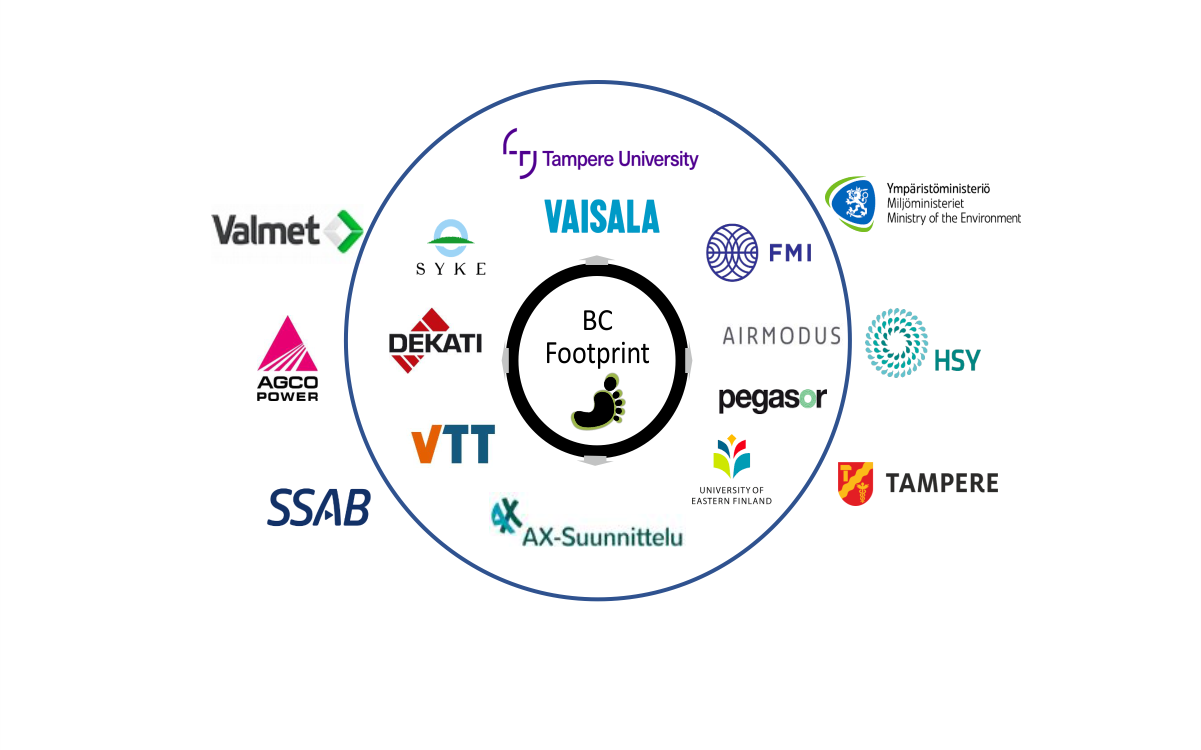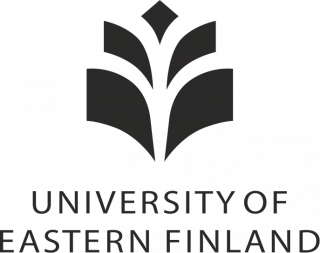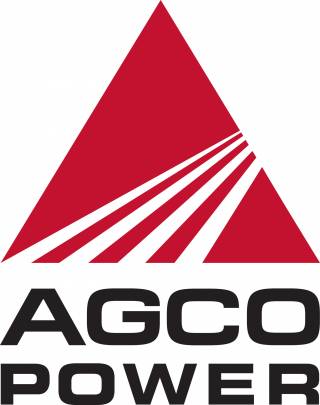Aerosol Physics
Our research includes laboratory studies with test particles, developing measurement methods and understanding particle emissions, and real-world studies regarding the effects of particles on air quality and climate. The central research areas of the aerosol physics unit are presently instrument development, combustion aerosols, atmospheric aerosols and gas phase nanoparticle synthesis. The instrument development utilizes the mechanical and electrical properties of aerosol particles to create novel, even commercial instruments. The research on atmospheric particles concentrates on the conversion of emissions and processes taking place in the atmosphere.
Key persons: Associate Professor Topi Rönkkö, Post-doctoral Researcher Panu Karjalainen, Doctoral Researcher Niina Kuittinen, Post-doctoral Researcher Fanni Mylläri
Cost Management Center
CMC investigates the business potential for BC emission control solutions. We identify different forms of customer value that the BC solutions create in different investment contexts. We also study actual investment decisions in other emission control contexts to estimate the potential impact of different policy measures on the decision outcomes. The identified investment drivers and decision-making mechanisms aim to support the consortium companies’ market creation work.
Key persons: Associate Professor Teemu Laine, Doctoral Researcher Natalia Saukkonen
The Politics Unit
The Politics Unit conducts research on energy policies, energy transitions and the related environmental and climatic implications. The geographical focus extends from Europe and Russia to Asia. The group covers questions in politics, international relations, political economy, business and environmental studies and has ample experience of working on the interface of science, politics and business. Our interests in the project are in the regulative landscape of BC, the way key states and interests groups position themselves with regard to BC regulation, and the possibilities of promoting the BC footprint concept through means of Finnish economic diplomacy.
Key persons: Jean Monnet Professor Pami Aalto, M.Soc.Sc Anna Claydon
Bio and Circular Economy
The goal of our research is to promote a cleaner and safer future for the benefit of people and the environment. The group focuses on sustainable conversion of municipal and industrial wastes, wastewaters and flue gas streams to biochemicals and biofuels as well as on recovery of nutrients and metals. The Energy ang Biorefining team in the Bio and Circular Economy research group conducts modeling of Black Carbon formation and develops modeling tools for the industry that can be used in the development of more clean products.
Key persons: Industry Professor Tero Joronen, Doctoral Researcher Niko Niemelä
Finnish Meteorological Institute is the official expert authority on air quality in Finland. FMI carries out research, testing and development of air quality measuring methods and equipment, emission inventories, dispersion models and the chemical analyses of air quality.
Aerosol Research Group
FMI aerosol research group is focused on aerosol composition studies in both polluted urban and clean arctic environments. Black carbon has been an important focus for more than 20 years. Group has large instrumentation for BC measurements, which provides important part of instrumentation for this project. Furthermore, FMI’s long-term experience in both BC measurements, source apportionment and aerosol characterization is an important asset for this project. In BC Footprint project, special focus of aerosol research group is in BC measurements in both field and laboratory, BC source apportionment and BC Footprint concept development.
Key persons: Docent Hilkka Timonen, Dr. Sanna Saarikoski, Dr. Minna Aurela, M.Sc. Aku Helin, Docent. Aki Virkkula, Dr. Eija Asmi
Air Quality Calibration Laboratory
FMI Air Quality Calibration Laboratory acts as National Reference Laboratory for Air Quality according to the Finnish legislation for ambient air protection and as a Designated Standard Laboratory for the quantity of air quality, and it produces high-quality calibration services. Laboratory has a wide cooperation network that enables comprehensive interaction of sharing expertise and knowledge on air quality metrology, standardization and legislation, which can be utilized in this project. In BC Footprint project the calibration laboratory reviews calibration methods for BC instruments and studies BC measurement uncertainty and its role in BC Footprint concept.
Key persons: Dr. Karri Saarnio, M.Sc. Katriina Kyllönen, M.Sc. Mika Vestenius
In the Black Carbon Footprint project, the UEF Inhalation Toxicology Laboratory is both composing a literature review on the health effects of BC and conducting toxicological experiments with black carbon particles with different properties. Black carbon is not only a climate-forcing factor, but it also has substantial role for air quality and human health. In this project, we will show the health related toxicological effects that black carbon is causing. By this approach, we will have an overview of the health effects described earlier in the literature, complemented with the information from the toxicological cell models.
Key person: Ph.D., Academy Research Fellow Pasi Jalava
 VTT Technical Research Center of Finland research team in the field of engines, vehicles, fuels and exhaust emissions has a vast experience on the exhaust emissions, recently focusing also on black carbon emissions from marine engines. In the BC footprint project, VTT contributes in the evaluation of BC measurement methods, and in identifying BC emissions from mobile sources.
VTT Technical Research Center of Finland research team in the field of engines, vehicles, fuels and exhaust emissions has a vast experience on the exhaust emissions, recently focusing also on black carbon emissions from marine engines. In the BC footprint project, VTT contributes in the evaluation of BC measurement methods, and in identifying BC emissions from mobile sources.
Key person: Principal Scientist Päivi Aakko-Saksa
 As a part of conceptualizing BC footprint, the link from BC emissions to climate impacts that are commensurate with other established climate impact metrics (e.g. CO2 equivalents at different time horizons) should be developed. SYKE’s role in the project is to develop concept(s) for such BC climate metrics. The concept(s) will base on SYKE’s scientific expertise and research activities on climate metrics of BC, taking into account partners’ views and feedback that will be gathered in workshops during the project. Finally, the BC Footprint work and results will be linked with other relevant international, national and municipality level projects and processes.
As a part of conceptualizing BC footprint, the link from BC emissions to climate impacts that are commensurate with other established climate impact metrics (e.g. CO2 equivalents at different time horizons) should be developed. SYKE’s role in the project is to develop concept(s) for such BC climate metrics. The concept(s) will base on SYKE’s scientific expertise and research activities on climate metrics of BC, taking into account partners’ views and feedback that will be gathered in workshops during the project. Finally, the BC Footprint work and results will be linked with other relevant international, national and municipality level projects and processes.
Key persons: Senior Scientist Niko Karvosenoja, Researcher Mikko Savolahti
Vaisala is a global leader in environmental and industrial measurement. Building on 80 years of experience, Vaisala provides a comprehensive range of innovative observation and measurement products and services.
Key person: Senior Scientist Jaakko Yli-Ojanperä
 Dekati Ltd. has designed and manufactured high quality instrumentation for fine particle measurement successfully for over 25 years. Our measurement solutions include complete fine particle conditioning and measurement setups for <10 µm particles. In Black Carbon Footprint project we focus on particle and black carbon emissions from different combustion processes.
Dekati Ltd. has designed and manufactured high quality instrumentation for fine particle measurement successfully for over 25 years. Our measurement solutions include complete fine particle conditioning and measurement setups for <10 µm particles. In Black Carbon Footprint project we focus on particle and black carbon emissions from different combustion processes.
Key person: R&D Director Ville Niemelä
To mitigate climate change and to reduce health effects we need to decrease the number of ultrafine particles (UFP); including black carbon particles. Monitoring UFP is crucial, but to make a difference we need to get rid of the anthropogenic particles all together. This can be done if we know where, when and why particles are formed and what happens to them in the air around us.
Airmodus technologies help scientist, R&D personnel, air quality authorities, vehicle emission certification engineers, etc. to count aerosol particles. In addition, they offer a unique toolset for the detection of the formation and growth of nano sized aerosol particles.
Key persons: CEO Minna Väkevä, CTO Joonas Vanhanen
Pegasor develops and provides instrumentation for electrical measurement and monitoring of fine particles. The measurement solutions are based on in-house, protected technology and they are applicable for routine and continuous measurements. Pegasor instruments are available for the measurement of combustion emissions as well as outdoor and indoor air quality.
Key persons: Senior R&D Engineer Erkka Saukko, CTO Kauko Janka
AX-Consulting provides technical consulting and solutions for challenging customer needs. AX-Consulting was found in 1993 and at present employs around 100 professionals. The core competencies of the Environmental unit at AX-Consulting are air pollution control, noise mitigation, occupational hygiene and safety as well as related measurement and consulting services.
Through the BC Footprint project, AX-Consulting aims to increase the company know-how in order to respond to our customers’ needs also in the future. Black carbon will play an important role for example in new environmental permits.
Key persons: Director of Environmental Engineering Seppo Heinänen, Project Manager Sara Tapola
AGCO Power produces diesel engines for agricultural machinery and other off-road applications. The main plant and R&D are located at Nokia. AGCO Power also has assembly plants in Brazil and China. The engine business is part of AGCO Corporation, which is the third largest supplier of agricultural machinery worldwide.
Because AGCO Power has to comply with all present and future global emission regulations, we want to follow the research concerning soot emissions. Our own technology is changing rapidly during the next few years. That is why it is important to consider the effects of new technologies on black carbon emissions.
Key person: Research Manager Pekka Nousiainen
Valmet is a leading global developer and supplier of technologies, automation and services especially for industries that use bio-based raw materials, primarily the pulp, paper and energy industries as well as selected process industries. Valmet’s service and product offerings cover the entire life cycle of industrial processes, including new machines and plants, rebuilds, process control and services. Valmet has extensive technological know-how and a broad process understanding in solutions related to the pulp, paper and energy industries and other biomass conversion technologies. Valmet’s advanced automation solutions range from single measurements to mill wide turnkey automation projects. Valmet has a total of 12,000 employees in 33 countries.
SSAB is a highly-specialized global steel company driven by close relationships with our customers. SSAB develops high-strength steels and provides services for better performance and sustainability. The company is a leading producer on the global market for Advanced High-Strength Steels (AHSS) and Quenched & Tempered Steels (Q&T), strip, plate and tube products, as well as construction solutions. SSAB’s steels and services help to make end products lighter and increase their strength and lifespan. SSAB has been at the forefront of sustainability in many ways. With confidence deriving from our traditions, we now strive to do even more.
Helsinki Region Environmental Services Authority (HSY) is a municipal body, which is responsible for air quality monitoring in the Helsinki metropolitan area. HSY also produces waste management and water services, as well as promotes the implementation of air quality and climate change strategies. In the BC Footprint project, there are several important themes for HSY, such as source apportionment and characterization of BC in different urban environments, validation and calibration methods for monitoring instruments, sensor development, emission factors and inventories, as well as utilization of BC footprint concept in communication and decision making.
Key persons: Expert in Air Quality Jarkko Niemi, Head on Air Quality Unit Hanna Manninen
 Tampere city’s operations have been organised according to the municipality’s core tasks into three service areas: Well-being, Growth, Innovation and Competitiveness, and Urban Environment and Infrastructure.
Tampere city’s operations have been organised according to the municipality’s core tasks into three service areas: Well-being, Growth, Innovation and Competitiveness, and Urban Environment and Infrastructure.
During the BC Footprint project, black carbon emissions will be investigated in a heavily trafficked site in Tampere and a case study will be made to determine the BC Footprint a typical vehicle of driving between Tampere and Helsinki. Collaboration with HSY and Tampere provides access to air quality stations in Helsinki metropolitan area and Tampere.
Key person: Environmental Inspector Ari Elsilä
The Ministry of the Environment is responsible for preparing matters to be submitted for consideration by the Government and Parliament, such as matters concerning communities, the built environment, housing, biodiversity, sustainable use of natural resources and environmental protection.
The Ministry of the Environment leads national efforts and encourages cooperation in promoting sustainable development, securing a good living environment, and safeguarding biodiversity for both current and future generations. Within its own administrative branch, the Ministry is responsible for strategic planning, providing guidance and resources, drafting legislation, and for international cooperation.
Key person: Senior Specialist Kaarle Kupiainen
Business Finland is the most important public funding agency for innovation funding in Finland, and is directed by the Ministry of Employment and the Economy. Business Finland offers Finnish companies a unified customer journey for innovation activities, internationalization, investments, and tourism promotion. Business Finland’s 600 experts work in 40 offices globally and in 16 regional offices around Finland.
Key person: Senior Adviser, Ph.D., Markku Lämsä
















